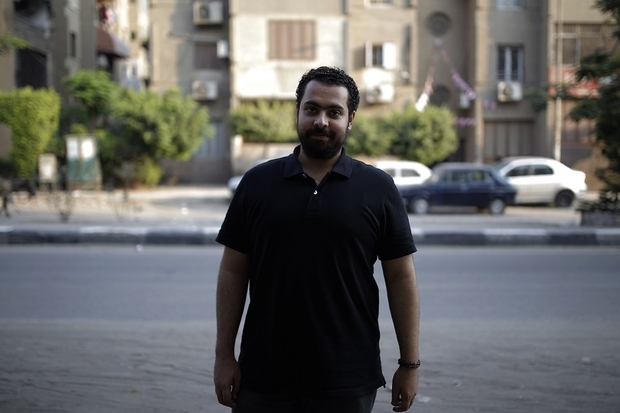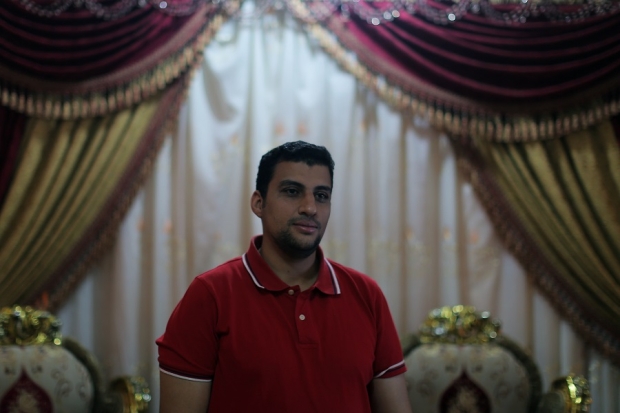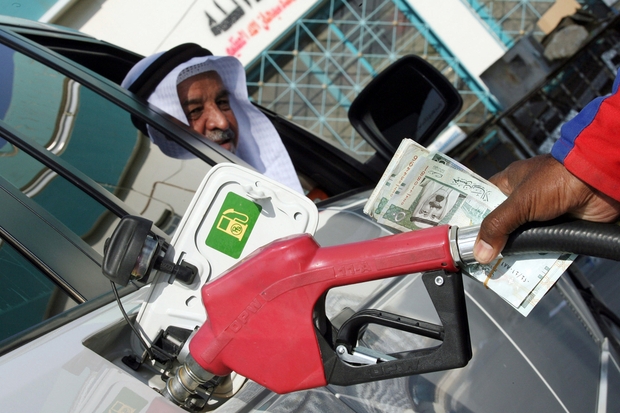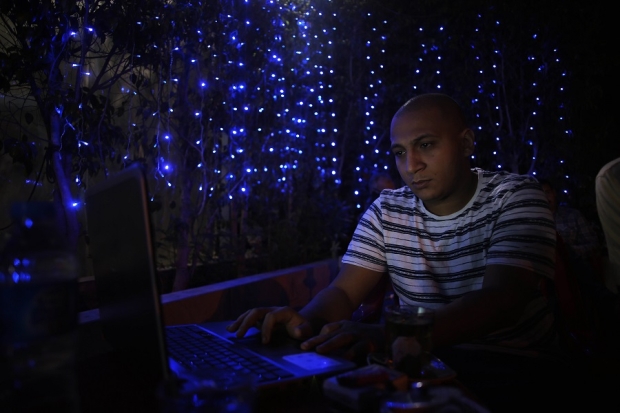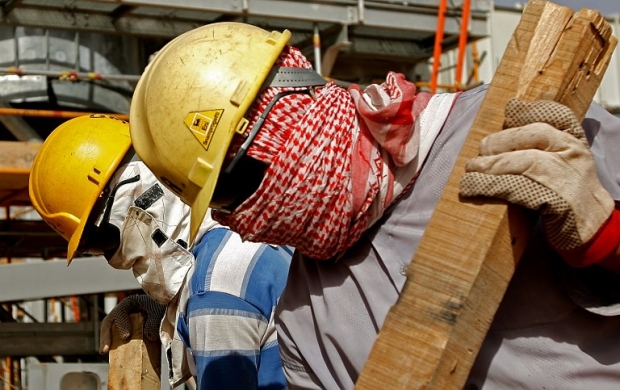Surviving Saudi Arabia: Egyptian expats forced to return home after losing jobs

CAIRO – “The difference between life in Cairo and life in Riyadh is like the difference between the sky and land in terms of cleanliness, street infrastructure and order,” Abdullah Rabei, 27, told Middle East Eye.
Rabei was living in Riyadh for almost three years, working in human resources. Five months ago, as he was planning to buy a new car for SAR 65,000 ($17,000), he got the news that he was being laid off from work. He was given two months to leave Saudi and bid his friends farewell.
The company in Saudi - which Rabei preferred not to name - got downsized from 2,000 employees to 800 this year. Saudi Arabia is in financial crisis because of a collapse in oil revenues that account for 80 percent of government income.
Rabei, father of a one-year-old boy, tried to transfer his sponsorship to another company in Saudi Arabia, but the company refused under the "kafala" system, which is widely enforced in Gulf countries. It requires foreign workers to get their employer's consent to be able to change jobs or leave the country.
'How can I pay for house rent, water bills, medical treatment, even Pampers?'
- Abdullah Rabei
It hasn't been easy for Rabei and his family to resettle in the bustling capital of Cairo.
“I was very upset, I returned to the ‘mother of the world’ [Egypt, as locals like to call it] but I was in agony - because the ‘mother of the world’ isn’t the same as it was once upon a time," he said.
For three months, Rabei could not find a job with a decent salary. He applied for positions in human resources at several companies and they offered salaries that ranged from EGP 1,200 to 1,300 ($67.5 to $73.2) per month. Additionally, they required him to commute more than 20 kilometres away from home, adding further expenses after the recent spike in petrol prices to up to 50 percent.
“How can I go to offices that far away with that salary? How can I pay for house rent, water bills, medical treatment, even pampers?” he said.
In addition to basic life expenses, working in the Gulf with a salary at least five times the average wage in Egypt, Rabei accumulated a large amount of debt, which he is now unable to pay. Frustrated, Rabei settled for a job with low pay, but within walking distance from his home in the Cairo suburb of Maadi.
'Mother of the world'
Hossam Mazoura, 35, has been living with his parents in Gharbia province along with his wife for a few months, because he cannot afford to pay rent. He previously made a decent living working as a technician in a Saudi company in the eastern city of Dammam. He was employed there for six years, before he was laid off in May.
“There was a budget deficit so they started letting go of some people and others continued to work seven to eight months without salaries,” he said. “When these workers asked for their money, the managers would tell them to go file complaints at the labour office, but the labour office wouldn’t help at all.”
'The ‘mother of the world’ [Egypt] isn’t the same as it was once upon a time'
- Abdullah Rabei
Mazoura applied for yet another job one week ago and he hopes he'll be able to secure it and move out of his parents' house.
Dr Adel Hemeedd Yaacoub, economics professor at Al Azhar University, said that although the military campaign on Yemen is a financial burden, the main factor leading to this crisis in Saudis' labour market is the decline in oil revenues.
“Egyptian expats are both trained and cheap, in addition to their Arabic language which makes them favoured among the other nationalities,” Yaacoub told MEE.
'Egypt is a bit harsh'
Saudi Arabia's biggest construction firm, the Binladen Group, started letting go of foreign expats one year ago. The company laid off around 77,000 foreign workers in 2016.
"The company stopped paying [many] employees [including me] around four months ago,” he told MEE.
'They tell me in a job interview that the salary would range from EGP 1,200 ($67.5) to 2,000 ($112.6). What would that amount do these days?'
- Mohamed Abdel Qader
Abdel Qader took time off and flew to Cairo to see if he could set up a more stable job there, as the possibility of getting sacked seemed imminent.
“But the situation in the country [Egypt] is a bit harsh so I think I should return to Jeddah," he said. " I’m obliged to succumb to the circumstances. I honestly don’t know what to expect when I return."
According to Abdel Qader, it is difficult to find any vacancies. The ones available offer very low salaries that are barely enough to provide for a decent living considering the hike in prices after the government floated the Egyptian pound in November 2016.
“They tell me in a job interview that the salary would range from EGP 1,200 ($67.5) to 2,000 ($112.6). What does that amount do these days?” he said.
Abdel Qader decided that he has better chances in Jeddah, where he will look for a new job with better pay. He explained that the average salary for his position in Jeddah is six times more than that offered in Egypt.
“The salary compared with the living expenses in Jeddah wasn’t very generous, but one could live with it,” he said.
Unemployment in Saudi
Another reason behind the recent lay-offs is that the kingdom has taken steps to close off different areas of employment to foreigners, in a bid to to create jobs for young Saudis and reduce the unemployment rate among nationals.
The Saudi Arabian vision for 2030 outlines several construction projects in collaboration with huge foreign companies.
'It would be very difficult'
Mohamed Rizk, 36, lived and worked in Riyadh as a civil engineer at the Hashem Contracting and Trading Company for four years until he was laid off in February 2017.
Rizk’s wife and three daughters lived in Smouha, Alexandria, while he was in Saudi Arabia working to provide for his family.
He hopes the course will increase his chances of finding a good job. "I haven’t bought anything since I’ve come back to Alexandria,” he said.
Worried about his financial status and whether he will be able to provide for his family, he thought about partnering with a friend to open a mobile shop so he could get a stable income - even if the return is very little.
The private school fees alone for his two older daughters amount to around $1,238 a year. For now, he is paying the expenses from his savings. He hasn't even considered moving them to a cheaper school to reduce the financial burden until he finds a job.
“Until now, God is merciful and I can cover the costs of my kids’ education with their uniforms and all the other expenses,” he said.
“I couldn’t let them go to another [cheaper] school with a lower standard of education, it would be very difficult,” he added.
New MEE newsletter: Jerusalem Dispatch
Sign up to get the latest insights and analysis on Israel-Palestine, alongside Turkey Unpacked and other MEE newsletters
Middle East Eye delivers independent and unrivalled coverage and analysis of the Middle East, North Africa and beyond. To learn more about republishing this content and the associated fees, please fill out this form. More about MEE can be found here.


